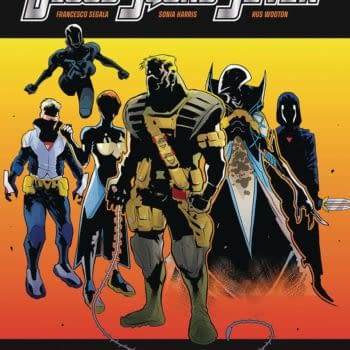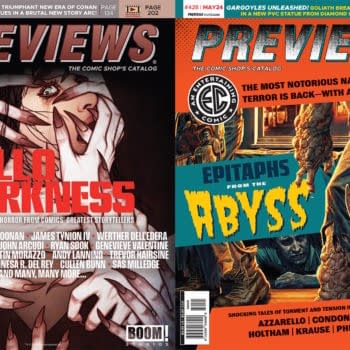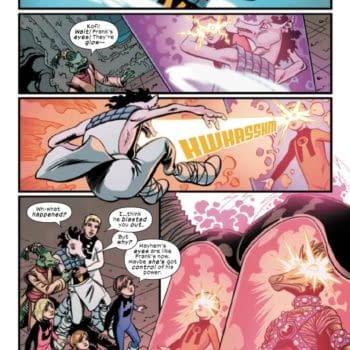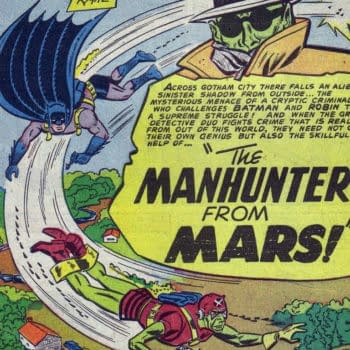Posted in: Comics | Tagged: comics code, Fredric Wertham, illinois
Dr Fredric Wertham Lied And Lied And Lied About Comics

Seducing the Innocent: Fredric Wertham and the Falsifications that Helped Condemn Comics(383-413).
Psychiatrist Fredric Wertham and his 1954 book Seduction of the Innocent serve as historical and cultural touchstones of the anti-comics movement in the United States during the 1940s and 1950s. Although there have been persistent concerns about the clinical evidence Wertham used as the basis for Seduction, his sources were made widely available only in 2010. This paper documents specific examples of how Wertham manipulated, overstated, compromised, and fabricated evidence—especially that evidence he attributed to personal clinical research with young people—for rhetorical gain.
The Bureau reports;
"Lots of people have suspected for years that Wertham fudged his so-called clinical evidence in arguing against comics, but there's been no proof," Tilley said. "My research is the first definitive indication that he misrepresented and altered children's own words about comics."
…
For example, in "Seduction," Wertham links "Batman" comic books to the case of a 13-year-old boy on probation and receiving counseling for sexual abuse of another boy: "Like many other homo-erotically inclined children, he was a special devotee of Batman: 'Sometimes I read them over and over again. … It could be that Batman did something with Robin like I did with the younger boy.' "
What Tilley found in Wertham's notes, however, was that the boy preferred "Superman," "Crime Does Not Pay" and "war comics" over "Batman," and that he had previously been sexually assaulted by the other boy – all information that Wertham left out.
He had an extensive case file on a 15-year-old boy named Carlisle, whom he was counseling for truancy, petty thievery and gang membership. Carlisle brought three comic books to one counseling session, and the transcript in Wertham's file shows that Carlisle said one of the comic books, called "Crime Must Pay the Penalty," was instructive on ways to commit burglaries and holdups. However, in "Seduction," Carlisle's quotes appear to come from five different boys, ranging in age from 13 to 15, in different settings and contexts.
And Tilley found one quote from Carlisle's transcripts that Wertham chose not to use, in which the boy described learning about robbery "in the movies. Movies help a lot."
Tilley's article also cites the case of Dorothy, a 13-year-old whose chronic truancy Wertham ascribed to her admiration for the comic book heroine Sheena and "crime comics," omitting any mention of other factors listed in her case notes, such as her low intelligence, her reading disability, her gang membership, her sexual activity and her status as a runaway. Wertham also didn't reveal that he never personally met or observed Dorothy; she was the patient of his associate, Dr. Hilde Mosse.
And she's also heading in a rather intriguing direction;
Her research turned up a few other surprises: about 30 letters written to Wertham and another 200 or so sent to the Senate subcommittee by children trying to save their access to comic books. Other researchers have mentioned the missives sent to the subcommittee, but Tilley decided the young writers' arguments deserved more attention. "Some of them talked about fairy tales and folk tales, Poe and Shakespeare, and said this stuff has murder and sex and traumatic events too, but you call that good literature," Tilley said. She is in the process of locating as many of these letter-writers as she can find, for her research on how kids related to comics over time. "For most of them, my contact is the first acknowledgement they've had in 60 years that anybody read their letter."
Anyone fancy adapting those into comics, Duplex Planet Illustrated style?













